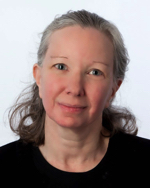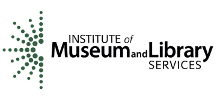
About ConnectedLib
Our Current Work
Our current work brings together interdisciplinary faculty and research scientists from the University of Washington (UW) Information School and the University of Maryland (UMD) College of Information Studies; advisory board members (AB) that are experts in connected learning (CL), continuing education, and rural and small public libraries; and partners that have reputable standing in terms of reaching rural and small libraries nationwide. The main goal of this project is to provide continuing education opportunities to library staff in rural and small libraries on how to embed CL principles into teen programs and services. We are scaling the ConnectedLib Toolkit by tailoring the content to meet the needs of rural and small library staff to serve their community’s teens successfully, as well as launching a community of practice (CoP) and learning circles that will empower these staff to support each other in building capacity and skills to implement CL activities. In addition, we are working with participating library staff to develop a new module for the Toolkit that focuses on youth civic engagement. This module is inspired by the recognition that many rural and small libraries serve as hubs of civic participation in their communities and are therefore well positioned to promote the civic engagement of their teen patrons.
We are partnering with two organizations: YALSA and the Association for Rural and Small Libraries (ARSL). YALSA was an instrumental partner in the grant that the ConnectedLib team previously received, specifically in the design, development, and deployment of the ConnectedLib Toolkit nationwide. The project will fill a significant need to produce worked examples of the application of CL in rural and small libraries, which is almost non-existent. It also fills a need to equip rural and small library staff with skills to design, develop, implement, and evaluate CL to serve teens in underserved areas that need such programming.
The connected learning model articulated by Mimi Ito and colleagues describes how networked technologies can be leveraged in a variety of settings — including libraries — to promote learning experiences that are interest-driven, peer-supported, academically-oriented, and connected to the various contexts that young people experience in their everyday lives. ConnectedLib responds directly to this need by working with in-service librarians to create a suite of professional development resources aimed at building librarians’ capacity to engage and promote connected learning and future-ready skills among today’s youth.
Our Team
Katie Davis |
|

|
Website | Email Dr. Katie Davis is an Associate Professor at the University of Washington Information School, Adjunct Associate Professor in the UW College of Education, and a founding member and Co-Director of the UW Digital Youth Lab. Her research explores the role of new media technologies in young people’s personal, social, and academic lives, with a particular focus on the intersection between technology and identity development during adolescence and emerging adulthood. Dr. Davis holds two master’s degrees and a doctorate in Human Development and Education from Harvard Graduate School of Education. |
Mega Subramaniam |
|

|
Website | Email Dr. Mega Subramaniam is a Professor at the College of Information Studies at the University of Maryland, and a founding member and Co-Director of the UMD Youth eXperience (YX) Lab. Her research focuses on enhancing the role of libraries in fostering the mastery of emerging digital literacies that are essential to STEM learning among underserved young people. Dr. Subramaniam received her Ph.D in Information Studies from Florida State University and her master’s degree in Instructional Systems Technology from Indiana University, Bloomington. |
Chris Coward | |
 |
Chris Coward is a Senior Principal Research Scientist at the University of Washington Information School, director of the Technology & Social Change Group, and co-founder of the Center for an Informed Public. Chris studies issues of information access, digital equity, information and digital literacy, misinformation, and civic engagement. Much of his research involves codesigning new programs and services in public libraries around these issues. He holds two master’s degrees in international studies and public administration, both from the University of Washington. |
Kelly Hoffman |
|
 |
Website | Email Kelly M. Hoffman is a doctoral candidate at the College of Information Studies at the University of Maryland. She earned an MLS from the University of Maryland in 2007 and worked as a systems librarian and knowledge manager before returning to academia. Her research focuses on personal knowledge management and neurodiversity. |
Linda Braun |
|
 |
Linda W. Braun, a Learning Consultant with LEO, works with educational institutions across the United States to design and deliver quality learning experiences for youth, families, communities, and staff. She co-authored the reports, Ready to Code: Connecting Youth to CS Opportunities Through Libraries, The Future of Library Services for and with Teens: A Call to Action, and Transforming Library Services for and with Teens Through CE and has authored numerous books and articles. She is a past president of YALSA and has taught for Simmons College School of Library and Information Science, the University of Washington iSchool, and the University of Maryland College of Information Studies. |
Stacey Wedlake |
|
 |
Stacey is a research coordinator and analyst with the Technology & Social Change Group at the University of Washington Information School. Much of her research focuses on adult community-based digital equity programs. Before coming to the UW, she taught basic computer classes at a nonprofit, community college, and as Peace Corps Volunteer in Mongolia. Stacey holds degrees in Public Administration (MPA) and Library and Information Science (MLIS) from the University of Washington. She earned a BA in Communication from Trinity University (San Antonio, Texas). |
Rotem Landesman |
|
 |
Rotem Landesman is a PhD student at the iSchool at University of Washington. She earned her BA in Communications at the IDC in Israel, and a MA in Technology and Philosophy at Tel Aviv University, as well as worked in several marketing and learning roles in the industry. |
Our Advisory Board
- Tammy Dillard-Steels, Executive Director of the Young Adult Library Services Association (YALSA)
- Dr. Mizuko Ito, University of California, Irvine
- Bailee Hutchinson, ARSL Board Member and Branch Manager at the Altus (OK) Public Library
- Dr. William Penuel, University of Colorado, Boulder
- Dale Musselman, Learning Manager at WebJunction
- Gail Sheldon, Youth Services Consultant at the Alabama State Library
The Original ConnectedLib Project
With funding from the Institute of Museum and Library Services (IMLS), the ConnectedLib toolkit was created to help librarians promote connections across youth learning contexts. Faculty members from the library and information science (LIS) schools at the University of Washington (Dr. Katie Davis) and University of Maryland (Dr. Mega Subramaniam) teamed with public libraries to create professional development resources to support librarians in their efforts to leverage new media technologies and promote youth’s connected learning experiences in libraries. The public library partners who helped develop the toolkit — Providence Public Library, Seattle Public Library, and Kitsap Regional Library — serve a variety of traditionally underserved youth populations, including rural, immigrant, and low-income youth.
Former Team
- Katie Davis, Principal Investigator -- University of Washington
- Kelly M. Hoffman, Graduate Research Assistant -- University of Maryland
- Ligaya Scaff, Graduate Research Assistant -- University of Washington
- Mega Subramaniam, Principal Investigator -- University of Maryland
- Saba Kawas, Graduate Research Assistant -- University of Washington
- Milly Romeijn-Stout, Graduate Research Assistant -- University of Washington
Former Library Partners
- Seattle Public Library
Juan Rubio -- Program Manager for Digital Media and Learning
Rekha Kuver -- Youth and Family Library Services Manager - Kitsap Regional Library
Shannon Peterson -- Youth Services Manager - Providence Public Library
Jack Martin -- Executive Director
Shannon Lake -- Teen Educator/Librarian
Former Advisory Board
- Denise E. Agosto, Ph.D -- Professor, College of Computing & Informatics at Drexel University
- Mizuko Ito, Ph.D -- Professor in Residence and John D. and Catherine T. MacArthur Foundation Chair in Digital Media and Learning at the University of California, Irvine
- Sandra Hughes-Hassell, Ph.D -- Professor, School of Information and Library Science at the University of North Carolina at Chapel Hill
- Beth Yoke, CAE -- Executive Director of the Young Adult Library Services Association (YALSA)


